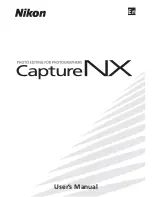
The Job History Machine Detail view displays a single row for each WCI filter included in the collection
job. These rows provide information about the execution of the WCI scripts and the parsing of the script
results. In cases where the script cannot be executed because prerequisite components are not installed or
available (such as PowerShell is not installed), the status for a row will be “Not Executed.” This status does
not result in a failure for the inspection because PowerShell (or other script engines) are optional
components and may not even be installable on all VCM-supported OS versions.
If a WCI collection job encounters errors on a machine, detailed information about the failure will be
reported. The failure could occur during the launch of PowerShell, during script execution, or during the
interpretation of the script results. For example, an error could occur in the PowerShell launch process if
PowerShell is not installed on the VCM-managed machine. However, since PowerShell is an optional
component, such a failure does not roll up as an error to the job level, although the job details will show
Not Executed to show such skipped steps. On the other hand, if a PowerShell script generates errors due
to syntactical or typographical defects in the script itself, these errors will roll up to a “completed with
errors…” status at the collection job level.
Running Reports
Several reports are included for reporting on Windows Custom Information, including:
n
Netstat Open Ports:
Reports port and protocol information from the
netstat –A
command.
n
SQL SMO Database:
Reports database details collected.
n
SQL SMO Instance:
Reports basic information about SQL Server instances collected.
These reports are in
Reports | Machine Group Reports | Windows | Custom Information
.
Getting Started with PowerShell Scripts
The Windows Custom Information data type (WCI) uses extensions to the VCM Windows agent to allow
the agent to invoke scripts that are passed down as part of a collection filter’s parameters, and then parse
the results. As a result, these extensions are very flexible in that they use filter parameters to detail the
command line to invoke the scripting engine, and a COM class name to specify the parser the Agent will
need in order to parse the script output. This allows the eventual extension of the system to support
multiple different scripting engines/languages and multiple options for output format.
For this version of WCI, the base requirement supports PowerShell for the scripting engine and a specific
XML format, named Element Normal XML, as the output.
This topic describes:
n
Executing PowerShell Scripts
n
Developing Custom Collection Scripts
n
Example of Developing a Custom PowerShell Script for Use with the WCI Data Type
n
Troubleshooting Custom PowerShell Filter Scripts
Getting Started with VCM
VMware, Inc.
75
Summary of Contents for VCENTER CONFIGURATION MANAGER 5.3
Page 8: ...vCenter Configuration Manager Installation and Getting Started Guide 8 VMware Inc...
Page 46: ...vCenter Configuration Manager Installation and Getting Started Guide 46 VMware Inc...
Page 158: ...vCenter Configuration Manager Installation and Getting Started Guide 158 VMware Inc...
Page 178: ...vCenter Configuration Manager Installation and Getting Started Guide 178 VMware Inc...
Page 194: ...vCenter Configuration Manager Installation and Getting Started Guide 194 VMware Inc...
Page 204: ...vCenter Configuration Manager Installation and Getting Started Guide 204 VMware Inc...
Page 208: ...vCenter Configuration Manager Installation and Getting Started Guide 208 VMware Inc...
Page 234: ...vCenter Configuration Manager Installation and Getting Started Guide 234 VMware Inc...
Page 264: ...vCenter Configuration Manager Installation and Getting Started Guide 264 VMware Inc...
Page 274: ...274 VMware Inc vCenter Configuration Manager Installation and Getting Started Guide...
















































